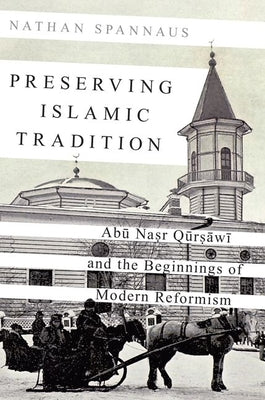-

A note on book covers: while we do our best to ensure the accuracy of cover images, ISBNs may at times be reused for different editions of the same title which may hence appear as a different cover.
Preserving Islamic Tradition: Abu Nasr Qursawi And The Beginnings Of Modern Reformism
Preserving Islamic Tradition: Abu Nasr Qursawi And The Beginnings Of Modern Reformism
Couldn't load pickup availability
The introduction of a state-backed structure for Muslim religious institutions altered Islamic religious authority and, in turn, religious discourse. One of the major figures to emerge from this new context was Abu Nasr Qursawi (1776-1812). A controversial figure who was condemned for heresy in Bukhara in 1808, Qursawi put forward a sweeping reform of the Islamic scholarly tradition. Focusing on taqlid, the principle of conformity to established doctrine, Qursawi argued that its overuse had weakened scholarship in the areas of Islamic law (fiqh) and theology (kalam) and undermined scholars' ability to serve as religious guides.
In Preserving Islamic Tradition, Nathan Spannaus presents the first detailed analysis of Qursawi's reformist project, both in its contours and broad historical setting. Spannaus shows how state control of Muslim institutions impacted religious discourse, but also how it altered the entire religious environment into the twentieth century. Addressing issues of modernity, secularity, tradition, and intellectual history, Preserving Islamic Tradition demonstrates how the interaction with a European imperial state transformed the Islamic tradition, both directly and indirectly, and elicited new forms of religious thought and discourse.
Details of Book
A note on book covers: while we do our best to ensure the accuracy of cover images, ISBNs may at times be reused for different editions of the same title which may hence appear as a different cover.

-
One Line Summary
Explores Islamic reform amidst Russian imperial influence.
-
Who is this book for?
If you're interested in how Islamic thought evolved under state influence, this book provides a detailed look at Abu Nasr Qursawi's reform efforts. It reveals the tensions between tradition and modernity within Islam in a complex historical context. Spannaus's analysis offers a fresh perspective on a pivotal moment shaping Muslim communities' response to modern challenges.

